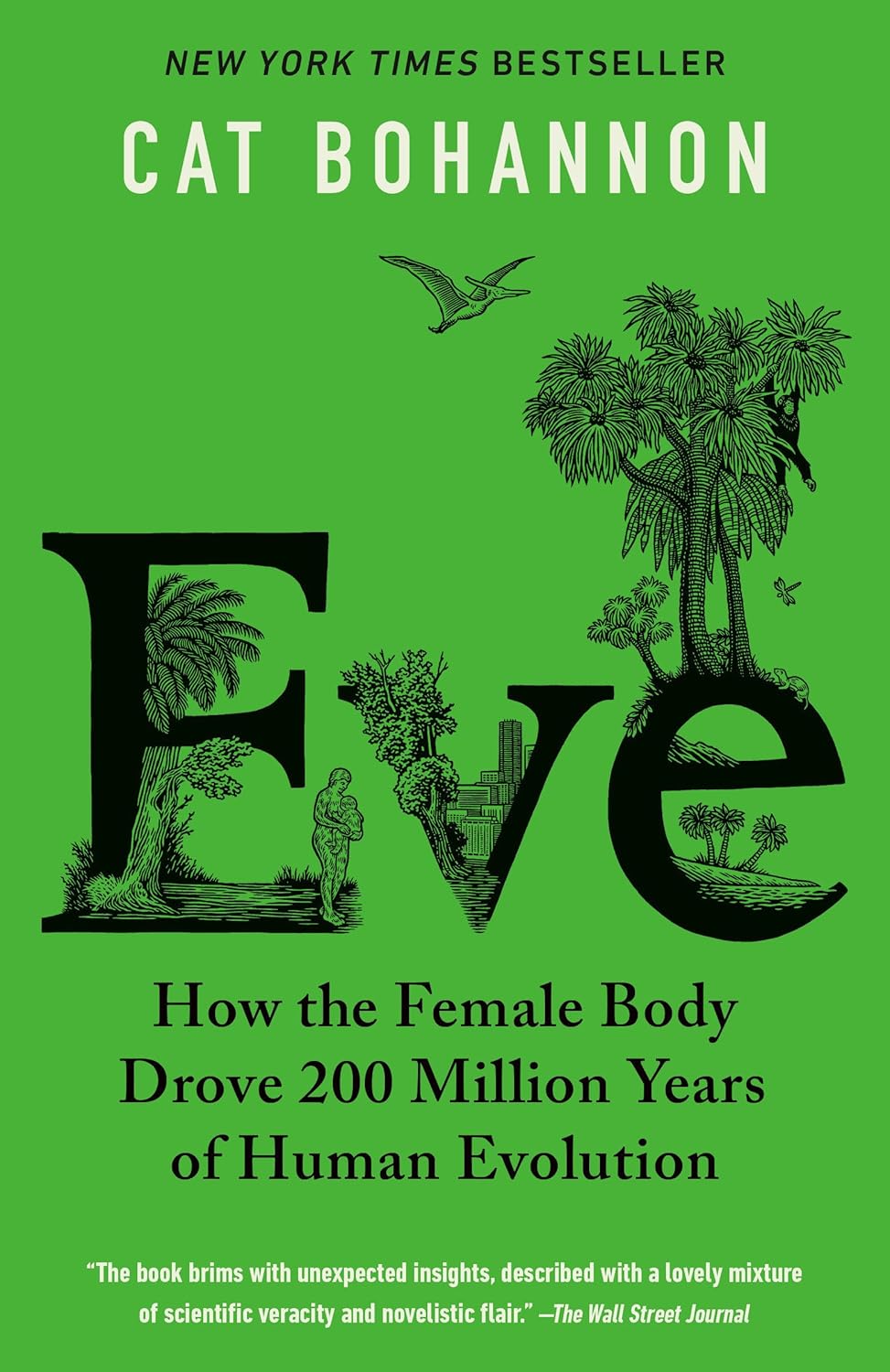Summary | Excerpt | Reading Guide | Reviews | Beyond the Book | Read-Alikes | Genres & Themes | Author Bio

How the Female Body Drove 200 Million Years of Human Evolution
by Cat BohannonThis article relates to Eve
In March 2019, NASA was due to launch the first all-women spacewalk from the International Space Station. It was to be a milestone in space exploration. Astronauts Christina Koch and Anne McClain were to walk outside the ISS to replace lithium-ion batteries; Mary Lawrence and Kristen Facciol were to be lead flight director and lead spacewalk flight controller, respectively, from the Johnson Space Center in Houston.
However, the history-making spacewalk was canceled due to an oversight no one had bothered to consider: there was only one spacesuit available that was a suitable size and, more importantly, was safe for a woman to wear. McClain had discovered during an earlier spacewalk that a medium-sized hard upper torso (the "shirt" of the spacesuit) would fit her best and there was only one that could be made available at the time, which was to be given to Koch. The other 40-year-old spacesuits available were too large and designed for men. "Make another suit," Hillary Clinton tweeted, voicing the anger and frustration felt by women around the world. It turned out that it was easier to replace McClain with one of her male colleagues than to reconfigure one of the other suits; but why was only one suitable spacesuit available for women in the first place?
Since the days of Aristotle, science and medicine have been dominated by what author Cat Bohannon calls in her book Eve "the male form." Historically, male "superiority" has been seen as a given, with women regarded as defective men, instead of a unique biological sex in their own right. This misogyny and male bias continued throughout the Middle Ages, contributing to ignorance and neglect in female healthcare. Women were shut out of medical schools and institutions, forced to establish their own medical practices and treatments specific to their needs outside of the mainstream medical system.
Male bias in the medical establishment remains a serious problem to this day. Most of the research and trials done for new medications and treatments are tested on male bodies – whether animal or human. Dosages and prescriptions are distributed on a one-size-fits-all basis, on the erroneous assumption that these will have the same effect on a female body as they do on a male one. Biological sciences still regard the male body as "the norm," not just for studies in human beings, but for all animals. Often, when a new drug is released onto the market, the odds are that women are underrepresented in its clinical trial, resulting in women experiencing more adverse side effects when prescribed said drug. Sex differences are often not even considered when conducting research and experiments related to medication.
To be fair, not all of this neglect and ignorance can be ascribed to sexism: other factors are also involved. The female fertility cycle can make the results of studies more difficult to interpret, for instance. However, this does not explain why items of general safety are often built for men, including seatbelts (generally tested on crash test dummies designed using the average male body), standard issue police armor vests, and indeed, spacesuits.
Although the first all-female spacewalk was completed later that same year, this was not an indication that things were getting better for women overall. In fact, in some ways they are getting worse, which is why books like Bohannon's Eve are more necessary than ever. Amidst the current backlash against the gains of feminism and ravages of sexism and misogyny, Eve joins a growing international chorus of female voices countering hostile anti-women cultures and narratives — in science, medicine, and elsewhere. It is a worthy companion to Caroline Criado-Perez's seminal book Invisible Women, and the upcoming documentary about women's health Below the Belt, produced by Hillary Clinton and Rosario Dawson. In the context of this dark age, Eve takes its place as part of a strengthening and vocal women's liberation movement, which has been badly attacked and weakened in recent years, but is now showing increasing signs of courage, will, and determination to turn the tide.
Filed under Medicine, Science and Tech
![]() This "beyond the book article" relates to Eve. It originally ran in November 2023 and has been updated for the
February 2025 paperback edition.
Go to magazine.
This "beyond the book article" relates to Eve. It originally ran in November 2023 and has been updated for the
February 2025 paperback edition.
Go to magazine.
Your guide toexceptional books
BookBrowse seeks out and recommends the best in contemporary fiction and nonfiction—books that not only engage and entertain but also deepen our understanding of ourselves and the world around us.